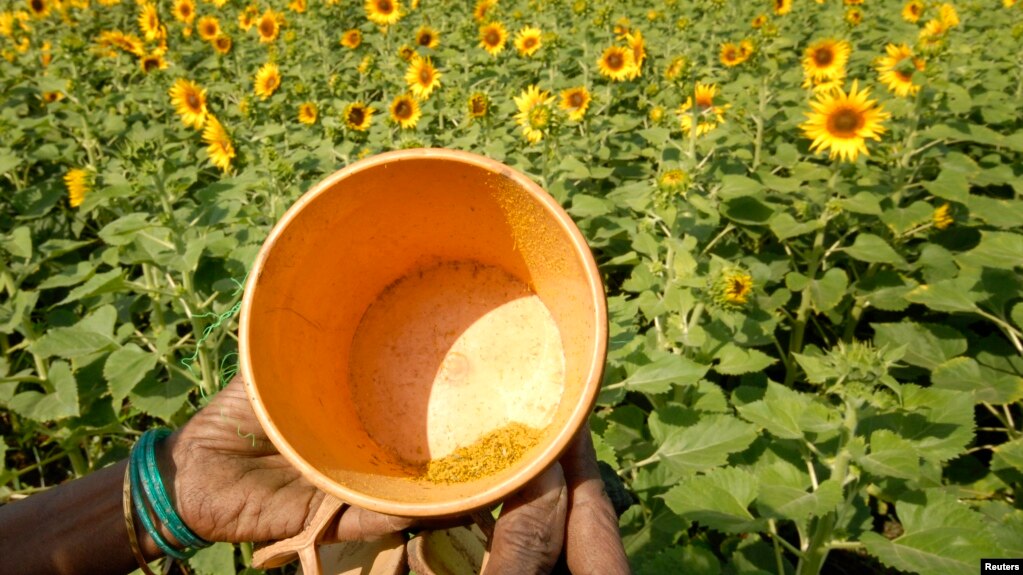Climate Change Produces More Pollen, Longer Allergy Season

Scientists at the University of Michigan say you are right if you think allergy season is getting worse and lasting longer.
Climate change makes trees and plants produce more pollen, and start earlier. The bad news is that it will continue to get worse.
The Michigan researchers say allergy season in the United States used to start around the middle of March. Now, however, especially in the warmer southeastern part of the country, it starts about one month earlier.
If climate change continues at its current pace, it might start around January 1 by the year 2100. If, however, reductions in greenhouse gas are put in place, the sneezing would start closer to the end of January.
Around the world, about 30 percent of people suffer from pollen allergies. Among children in the U.S., that number is about 40 percent.
Yingxiao Zhang is lead author of the study, recently published in the journal Nature Communications. He said sneezing and runny noses associated with allergies cause people to miss work and spend more money on health care. The lost days of work hurt global economies.
There are also about 25 million Americans with the condition known as asthma, which can make breathing difficult. Allergy season is extra hard for them. A longer allergy season in the future could cause problems, said Amir Sapkota, a professor from the University of Maryland. He was not involved in the Michigan study.
Those in the southeastern U.S. will have more problems due to the warming climate, said Allison Steiner, who worked on the study. In addition, those in the northwestern U.S. will see alder tree pollen start much sooner. People in Texas sensitive to cypress tree pollen will notice a change.
Other people who react to pollen from certain grasses and ragweed will also notice a difference in coming years, Zhang said.
Bill Anderegg is a biologist and climate scientist at the University of Utah. He was not involved in the study. He said the new study notes that the next pollen increase will be twice as large as the increase since 1990. He called the Michigan study “important.” He also said the pollen increase will have serious “health consequences.”
Where do you live? Have you noticed a change in allergies and pollen?
Words in This Story
allergy –n. a medical condition that causes someone to become sick after eating, touching or breathing something that is harmless to most people
pollen –n. the very fine usually yellow dust that is produced by plants and travels in the wind or by insects so the plants can produce seeds
greenhouse gas – n. a gas such as carbon dioxide that traps warm air in the atmosphere
sneeze – v. to suddenly force air out through your nose and mouth with a usually loud noise because your body is reacting to dust, a sickness, etc.
runny – adj. having a thin flow of liquid coming out
asthma – n. a physical condition that makes it difficult to breathe
consequence – n. something that happens as a result of an action or set of conditions
https://learningenglish.voanews.com/a/climate-change-produces-more-pollen-longer-allergy-season/6489843.html